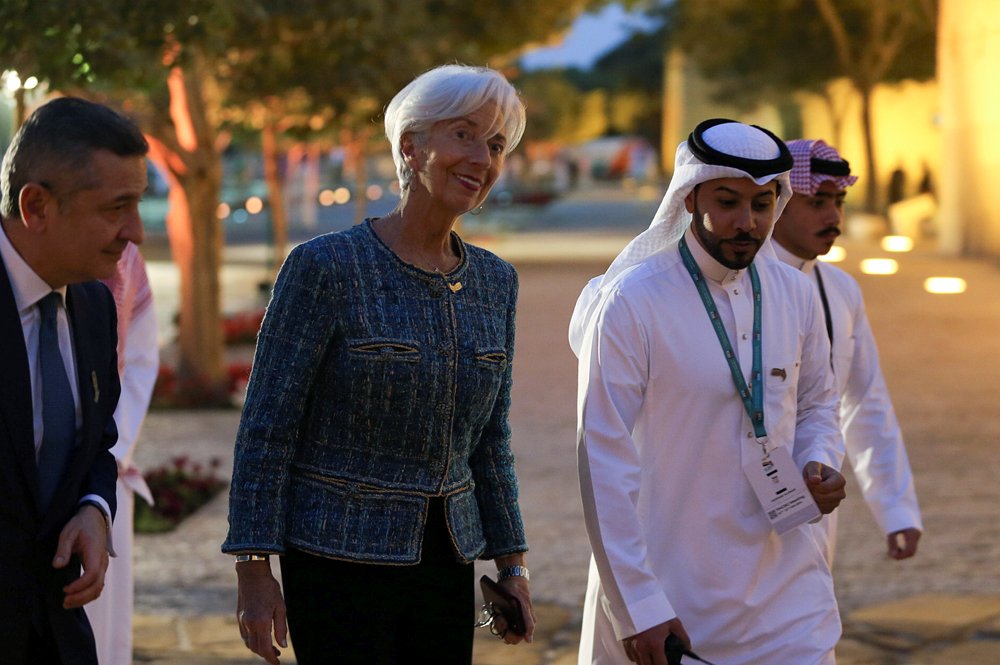
- ARAB NEWS
- 04 Jul 2025

It was, as one official of the Saudi G20 presidency commented, the “end of the beginning.” He was speaking as delegates and media were leaving the Ritz-Carlton in Riyadh at the close of a two-day meeting of finance ministers and central bank governors (FMCBG) that formally kicks off the public side of events in preparation for the full summit of global leaders in November.
It had been a pretty impressive start in challenging circumstances. Because of the coronavirus outbreak, there was no formal delegation from China, the world’s second-largest economy, though Chinese views were represented via more informal routes.
Many of the participants — with expert views on the global economy and China’s role within it — had been in the Saudi capital for some days before the financiers sat down together on Saturday, having attended the Institute of International Finance conference held before the FMCBG officially kicked off.
The finance track of the G20 aims to provide an early forum “for major international economic discussions, with a view to co-ordinating stable and sustainable growth of the global economy.” Informally, it tries to ensure — insofar as it is possible — that there are no major financial shocks ahead of the leaders’ summit.
The G20 began as a financial forum, and this role was reinforced in 2009 and 2010 when the organization held two summits in each of those years at the height of the global financial crisis. The G20 likes to get its financial priorities in order before the presidents, prime ministers and heads of state descend.
Toward the top of that agenda in Riyadh was the issue of international taxation. There was a high-level symposium of tax experts before the official FMCBG, identifying the key issues in tax transparency, tax evasion, and the threat of unilateral “digital taxation” that could exacerbate existing trade tensions.
These and other weighty issues — such as the global economic outlook, the need for greater financial inclusion, and a new borrowing framework, especially for emerging countries — were debated at length, as well as more arcane financial matters such as the coming discontinuation of the London Interbank Offered Rate (LIBOR) as an interest rate-setting mechanism.
But with all the ministerial-level meetings conducted behind closed doors, public evidence for the success or otherwise of the FMCBG is the official communique delivered at the end of its deliberations, and sure enough the document was ready on time as advertised.
G20 communiques, especially the final one at the end of the leaders’ summit, are always an exercise in compromise. With 20-plus viewpoints, it would be impossible to produce an agreement that completely satisfies all the participants. The Riyadh FMCBG communique was a good example of the diplomatic skills needed to reconcile apparent differences in an expression of fundamental unity.
The general consensus after the Riyadh finance meeting was that the Saudi presidency had got off to a good start.
Frank Kane
As the document was being prepared, reports emerged that there had been a serious disagreement between the ministers and officials over the prominence that should be given to climate change as a factor that could affect their calculations on the global economic outlook.
In the end, the communique trod a fine line on the issue. It mentioned the environment in general terms as a factor transforming the global landscape, and asserted that “our collective work should strive to foster sustainable development and growth.” But climate change was not mentioned specifically as a risk factor that could threaten global economic stability.
On the other hand, lower down in the communique there was a short sentence to the effect that the G20’s financial stability board was examining the “implications of climate change” — the first time the phrase has been used in a G20 communique. All parties could sign the communique happily without feeling they had given too much away.
Those skills in diplomacy will be required again at the leaders’ summit in November. But the general consensus after the Riyadh finance meeting was that the Saudi presidency had got off to a good start.